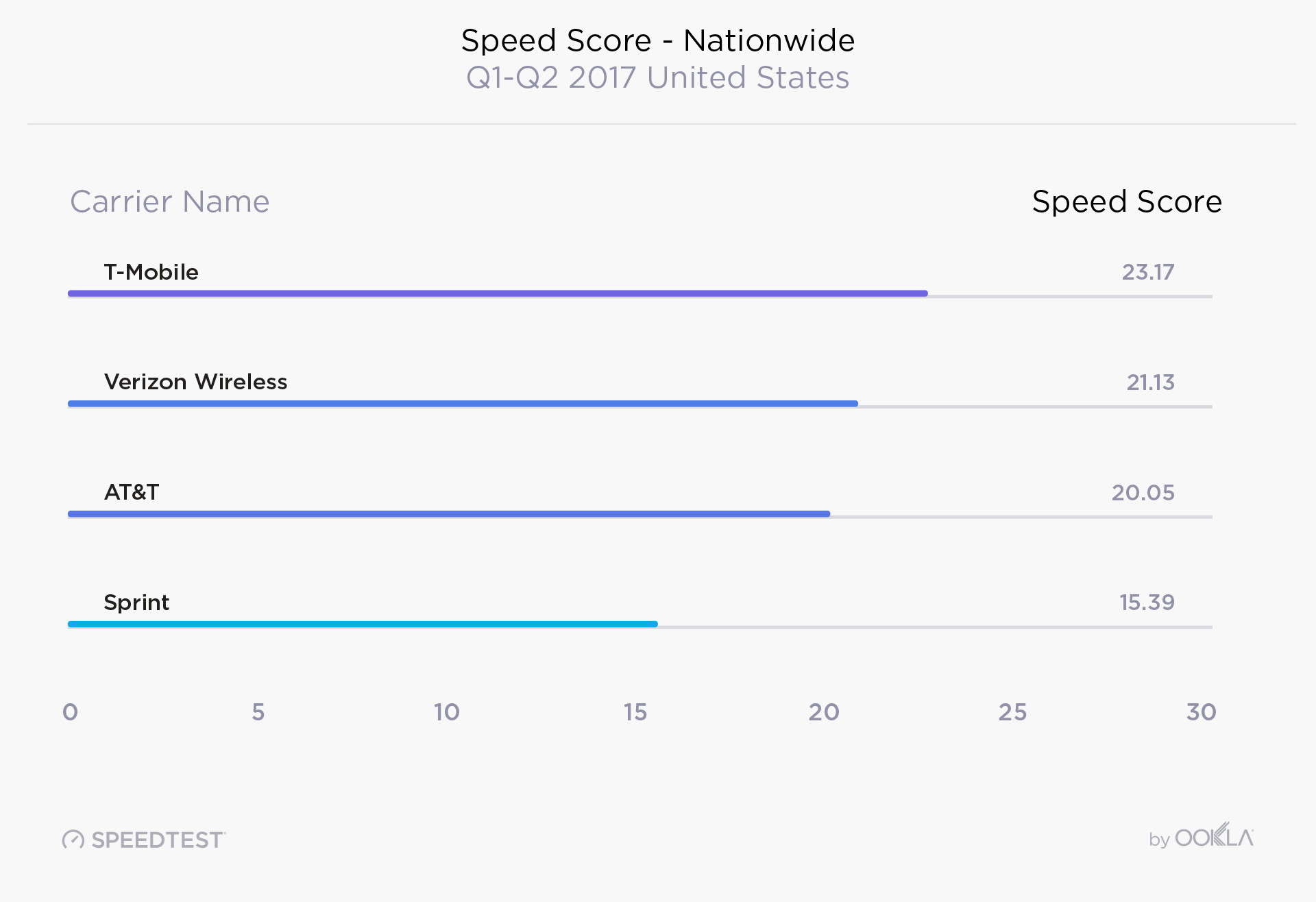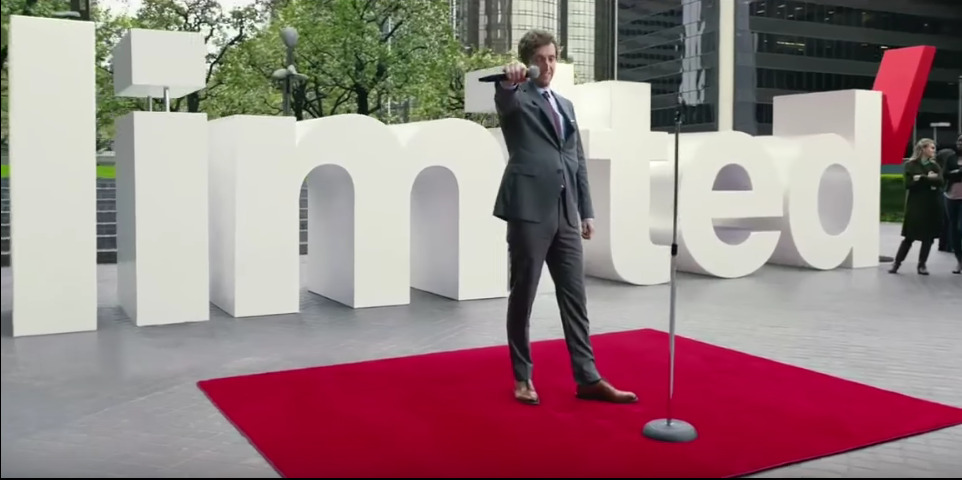Did Unlimited Plans Actually Slow Verizon's Network?
Early this year, Verizon launched a fantastic Unlimited data plan. Months later, it abruptly turned one plan into two, and tacked on a bunch of restrictions like mandatory video throttling. Analysts, competitors, and this lowly blogger were quick to point the finger at Verizon's average download speed, which appeared to have taken a big hit since the introduction of unlimited data.
But according to Verizon's execs, the network has "performed incredibly well" under Unlimited. Third-party data from OpenSignal and Ookla "doesn't line up at all with what I'm seeing," Verizon VP of wireless networks Mike Haberman, told me.
The case against Verizon is simple: crowd-sourced speedtest data from Opensignal and Ookla, the company behind Speedtest.net, shows a perceptible drop in Verizon's average speed for the first half of 2017, after it introduced unlimited data. The extent of that drop varies depending on which dataset you're looking at: according to Opensignal, the drop is about 2Mbps, or around 13%. The Ookla data specifically shows a 5% increase in the number of speedtests below the "acceptable threshold" of 5Mbps, indicating a sharp increase in the number of customers seeing very slow speeds.
The combined datasets of Ookla and Opensignal take in millions of real-world customer tests, so it's impossible to argue that the change isn't real. But Verizon contends that the drop in speeds isn't indicative of a network-wide problem. Instead, Haberman says that the unlimited plans were a hit in rural areas, where speeds are naturally slower than the national average. An increase in the percentage of speedtests being done in rural areas would naturally bring Verizon's overall speeds down, but doesn't mean that the network overall was saturated.
"I think it's a matter of going Unlimited, a matter of where the adopters of Unlimited would be...I don't know what they're doing, but certainly you could use [unlimited plans] as a landline bypass, or if you don't have any internet you can use it on your phone," Haberman said. "Quite frankly, they're going to the carrier with the best coverage. So, merely what you saw is people who don't have any coverage, they now have coverage, and now they have an Unlimited plan. You saw a segment of customers coming over, which is why you see more samples in rural areas."

An increase in the number of samples in rural areas doesn't seem like a big enough change to explain away the nationwide change, however. Opensignal Lead Analyst Kevin Fitchard told me "the number of samples you'd need...that doesn't make sense at all." Opensignal has millions of tests of real Verizon customers in its data; recording a 13% decrease in average network speeds would need to be something much more than just a change in the geographical distribution of samples.
Ookla suggested a different reasoning for the slowdown in its report. Rather than overall network saturation, it suggests that the slowdown is from new unlimited customers running into the deprioritization threshold (22GB) en masse. When a Verizon Unlimited customer uses more than 22GB of data in a month, their data may be throttled where necessary, all the way down to 3G speeds. "Others have argued that these networks may be saturated. However, if they were, we'd expect to see the number of tests at every level of speed decrease. Our data does not bear this out and it seems likely we're seeing reduced performance due to high usage de-prioritization," Ookla said in a blog post.
So the most likely reason for Verizon's slowdown is that Unlimited customers are hitting that deprioritization threshold, the cell towers they're using are congested, and their speeds are being throttled, resulting in the slow speedtests. That's not the same as all Verizon customers seeing the network slow down, but Fitchard argues that it doesn't matter what you call it: it's still congestion. It would be "almost absurdly naive" to suggest that Verizon's network hasn't seen any impact from the introduction of unlimited data, he said.
"We measure the experience consumers see on their mobile phones, so if what they see is are throttled speeds, then that's the experience. We're not trying to measure what the technical capabilities of the network are with our main 4G speed metric (that's what our peak speed metric is for). We're measuring typical everyday speeds. If throttling is having enough of an impact to cause a significant drop in those everyday speeds in our metrics, that means throttling is having a big impact on the consumer experience," Fitchard explained.
This might all seem like minor haggling over details, but understanding what's happened to Verizon's network since the introduction of unlimited data is key to understanding the recent changes it made to its unlimited data plan. Verizon explained the changes as offering "greater consumer choice," but a more logical explanation seems to be that the network in some places — possibly even just rural areas! — was seeing higher-than-expected usage, and Verizon needed to control that use in order to keep its network usable for everyone.
It's also important to understand that the impact of unlimited plans on Verizon's network doesn't mean that the carrier "can't keep up with Unlimited," or that its network was "crippled" as T-Mobile would have you believe. Even with the drop in speeds, Verizon is level-pegging with T-Mobile's network nationally, and beating it in the largest cities. While T-Mobile is scrambling to roll out 600MHz to increase its nationwide coverage to be on par with Verizon, Big Red is rolling out thousands of small-cell towers in cities, and refarming old 3G spectrum to LTE, all of which should massively boost capacity.
Ultimately, the people winning here are consumers. T-Mobile and Verizon can throw words at each other all they want, but the important thing is that both carriers are currently offering better, cheaper cell plans than we've had in years, and both are scrambling to build out insanely fast new LTE and 5G networks.
